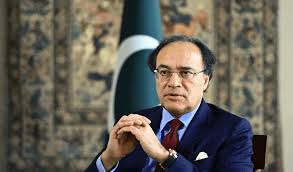ISLAMABAD, JULY19: Finance Minister Muhammad Aurangzeb, Pakistan is concentrating on obtaining foreign investment and asking for loan extensions in order to meet its needs for external funding. This was stated on Friday. This endeavor is being made as the nation is ready to execute a fresh $7 billion loan deal with the International Monetary Fund (IMF).
Pakistan must carry out stringent measures as part of the 37-month deal with the IMF, such as boosting taxes on agricultural income and electricity rates. Concerns have been expressed on how these policies will affect the nation’s middle class and impoverished, who already have to deal with rising living expenses and inflation.
Pakistan has often been dependent on IMF programs to avert financial crises, occasionally edging closer to a sovereign default. In the past, the nation has relied on friends like Saudi Arabia and the United Arab Emirates (UAE) for financial support to satisfy IMF targets.
Aurangzeb emphasized that although outside funding is still necessary, the government is turning its attention to more environmentally friendly options, as reported by Reuters.
This involves obtaining funding for climate change and luring in foreign direct investment. “We have requested extensions for loan maturities and expect loan rollovers to continue in the current situation,” said Aurangzeb. In the past, IMF funding and assistance from steadfast friends like China, Saudi Arabia, and the United Arab Emirates have been vital in helping Pakistan manage its external financing demands.
The IMF’s Executive Board must approve the new Extended Fund Facility program before Pakistan’s development and bilateral partners can confirm that the required funding would be provided.
FinMin describes the external finance deficit as “very manageable and very doable,” expressing optimism about its management. He emphasized a change in approach towards foreign direct investment, namely in the southern Pakistani copper and gold mine known as Reko Diq. Saudi Arabia and the United Arab Emirates, who have expressed interest in making significant investments, are the target market for the government’s efforts to find appealing projects.
Aurangzeb emphasized that in order to stay in the present IMF program, this plan must be implemented within the next three years. As of July 11, 2024, Pakistan, an IMF borrower since 1958, stands as the organization’s fifth-largest debtor, owing $6.28 billion. Aurangzeb also intends to visit China by the end of July to talk about improvements in the energy sector. More than $20 billion in energy projects in Pakistan have been committed by China.
